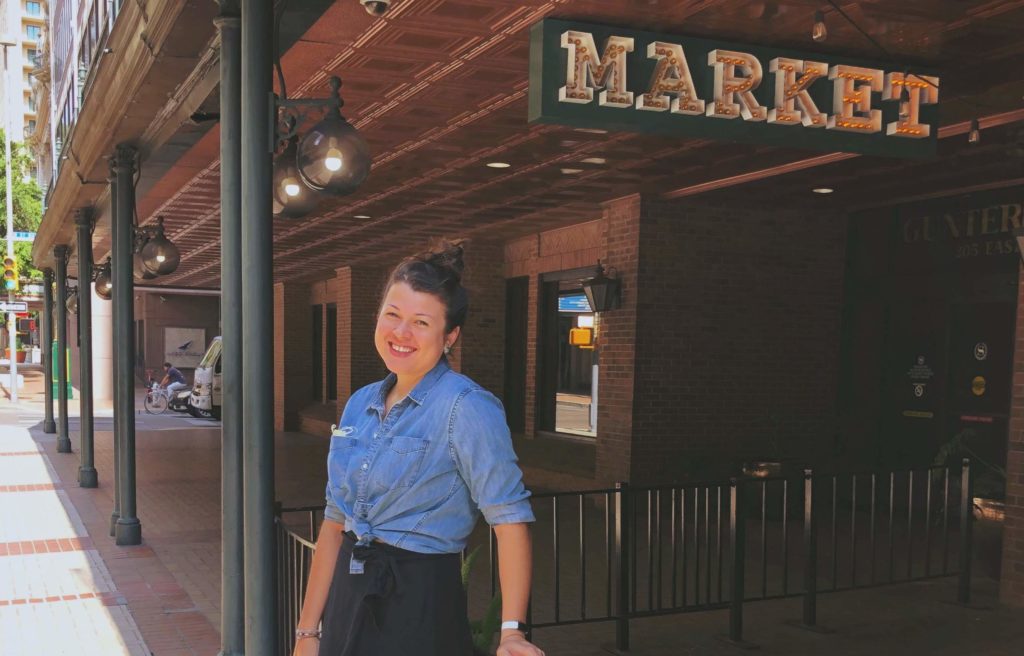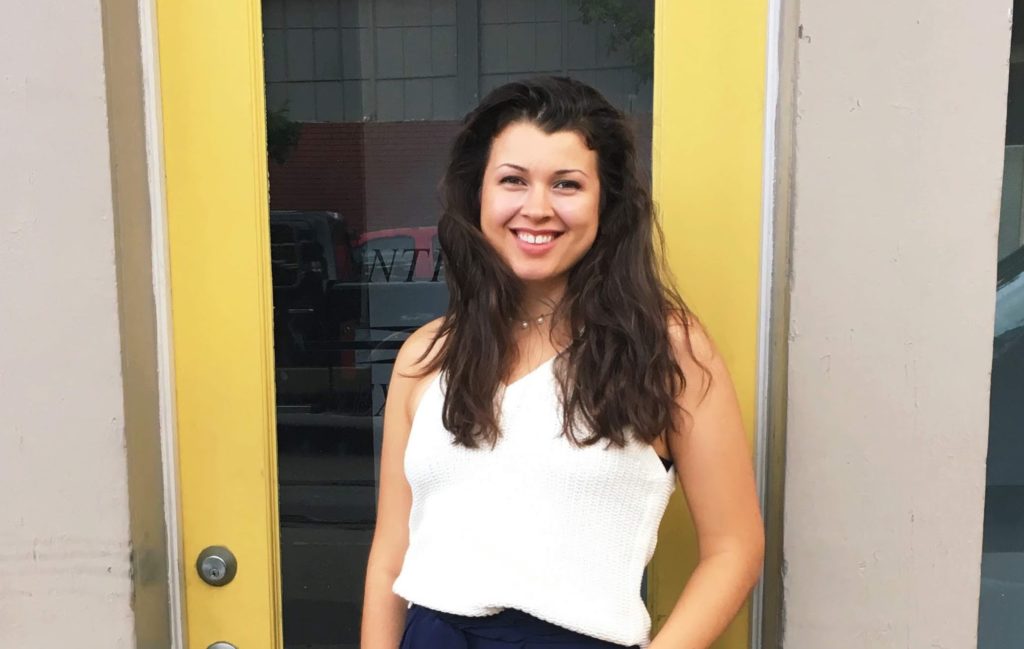Final Words: Jessye Castro, M.S. in Personalized Molecular Medicine
Your name, program, thesis title, mentor name.
Jessye Castro, M.S. in Personalized Molecular Medicine, The Role of APEX2 in Interstrand Crosslink Repair, Dr. Sang Lee
Please tell me about yourself, why did you pick UT Health San Antonio, and your program.
I grew up in East Texas and went to college at Trinity University here in San Antonio where I was pre-med and interested in becoming an oncologist. I really was not expecting to go to grad school after college. I approached Dr. Yew, now my program director, about working in her lab to get more bench work experience before applying to medical school. I found that during undergrad I loved being in a research lab and thought I should pursue that for a couple of years.
As we spoke, I told her I was very interested in oncology and preventative health so she mentioned that the PMM program might be a perfect fit. This program really helped me learn about the field and grow my knowledge base. Now that I’m graduating I have decided to continue my education by getting my Ph.D. and working in cancer biology and genomics.
What has been the highlight of graduate school so far? Have you won any awards or have there been any achievements you’ve been proud of?
Defending my thesis has definitely been the highlight. Until then I hadn’t been able to present my work in full detail so the presentation was actually pretty fun. Even more rewarding was fielding questions from faculty and realizing how much I had learned and now understood. I was lucky to have competed in the Mikiten Graduate Symposium 3 Minute Thesis and I was nominated as the student representative for my program as well as being a GSBS peer mentor.
Completing my thesis was probably the hardest thing I’ve ever done. Before coming to UT Health San Antonio.
I had very little lab experience so I had to learn the process of basic science and understand how important experimental design was on top of doing the actual science. My project was incredibly detail oriented and required a lot of preparatory work before I was able to get final data. It was a challenge but reflecting on it has shown me how much I have grown as a scientist.
Please provide a few sentences summarizing your thesis. What was the experience like for you?
APEX2 has the potential to be a drug target and biomarker for certain cancers. There are several groups across the world working to figure out what exactly this protein does and why it is so important for HR deficient cell survival. My work is a small toehold in the grand scheme of the work on this protein but being able to help further the field in an area that is important for cancer prevention was unbelievably exciting. Double strand DNA repair has always been a mind blowing process to me. Many of the HR proteins are biomarkers or drivers of cancer because once they become dysfunctional genomic stability begins and cancer is able to progress.
Why are you passionate about your research topic? How did you first become interested in it?
Several of the defined hallmarks of cancer can be linked to genome instability so I really wanted to work at the “source” and try to uncover something that would reverberate downstream in disease progression. Needless to say when I was presented with this project I immediately said yes.
What’s next?
I am planning on working or teaching for a year and then applying for a Ph.D. program before looking into some kind of liaison work with genetic screening. I may look into some translational science opportunities as well.
Any advice for your fellow graduate students?
Work smart not hard. If something isn’t working, tell someone. Ask for help (even if you feel like you are being annoying). Lastly, get used to being uncomfortable.




